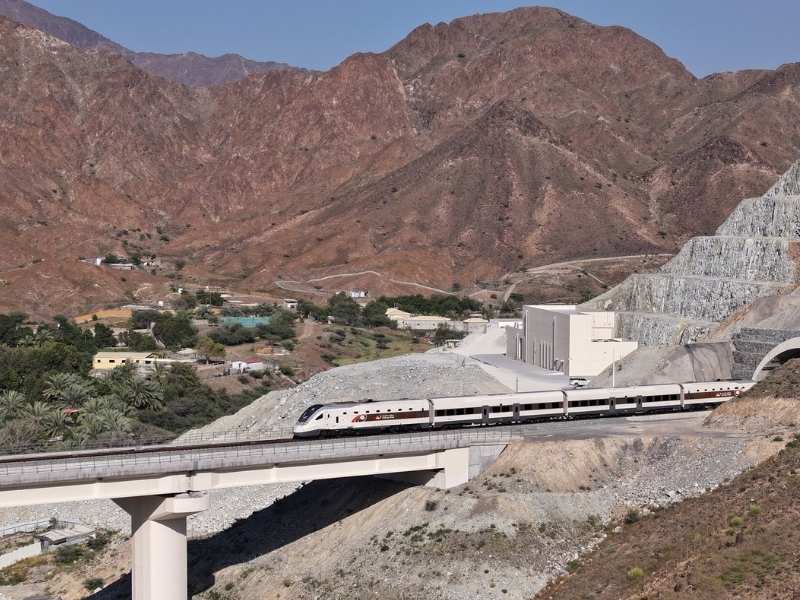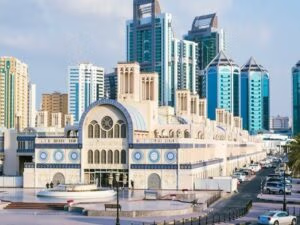As the UAE accelerates the rollout of its national railway network, a leading property expert believes the impact of Etihad Rail will extend far beyond transportation, unlocking new opportunities for real estate, trade, and investment across the country.
Firas Al Msaddi, CEO of fäm Properties, says the rail network is set to reshape the economic and urban geography of the UAE by increasing accessibility, compressing travel times, and enabling a new era of interconnected growth.
“When we saw Sheikh Mohammed riding the Etihad Rail from Dubai to Fujairah, that wasn’t just a symbolic moment – that was the announcement of a new real estate era in the UAE,” said Al Msaddi. “It represented a once-in-a-generation infrastructure shift that will redefine how value is created, captured, and capitalized across the Emirates.”
The Etihad Rail network, which will span 1,200 kilometers across the Emirates, is expected to transform intra-city and inter-emirate mobility, making locations previously considered distant now fully viable for living and investment.
“We’re not just talking about transportation. We’re talking about speed, interconnectivity, and productivity, and how all of that compresses space and time. And when you compress space and time, you reduce opportunity cost. That’s where the real value is unlocked,” Al Msaddi noted.
“Etihad Rail isn’t just a train, it’s a full-scale economic reset for the UAE. It will shift demand patterns, eliminate bottlenecks, and open up new corridors for living, trade, and investment.”
Al Msaddi emphasized that connectivity has long been a barrier for many parts of the UAE, despite each emirate offering unique lifestyle and commercial opportunities.
“Each emirate has always had something unique to offer. But until now, the opportunity cost of movement, whether for people, goods, or capital, has been too high,” he said.
“Etihad Rail changes that. When you cut travel time from 2 hours to 50 minutes between cities, you don’t just save time, you reshape where people choose to live, work, and invest.”
“What used to be too far is suddenly next door. Fujairah is no longer the end of the UAE, it’s the Eastern gateway. Al Ain becomes a realistic base for remote professionals who can now be in the capital or the coast in under an hour. This creates a complete re-pricing of land value, not based on geography, but based on accessibility.”
Citing international parallels, Al Msaddi referenced Japan’s high-speed rail between Tokyo and Osaka, which sparked rapid growth in cities along the route.
“Commercial land values rose over 40%, and housing demand surged more than 60%,” he explained. “It wasn’t about the train itself, but the economic flow unlocked by faster travel.”
“The UAE is applying that same model, but with one major advantage: it’s building the world’s most advanced, tech-enabled rail system from the ground up, with no legacy constraints.”
The logistics and B2B sectors are also expected to benefit, as the reduced travel time will improve efficiency and drive productivity.
“A salesperson based in Sharjah can now close deals in Abu Dhabi and Dubai without losing six hours to traffic,” he said. “That boosts output. Multiply that across the commercial class, and you start seeing real GDP impact.”
As Etihad Rail advances, Al Msaddi predicts significant growth in tier-2 cities like Fujairah, Al Dhaid, and Ruwais, driven by increasing demand and rising land values. He also foresees the emergence of transit-oriented hubs near rail stations, combining residential, retail, and commercial offerings.
“Transit-oriented hubs will rise near stations like Sharjah’s University City and Sakamkam in Fujairah, with walkable, mixed-use clusters,” he said. “Second-home markets will shift too. For families in Dubai, weekend beach units in Fujairah become practical when they’re under an hour away.”
In closing, Al Msaddi offered a word of advice to investors and developers:
“Those who still price real estate based on maps instead of travel-time analytics will lose money. Those who study station locations the way they used to study masterplans will build generational wealth.”
As Etihad Rail nears completion, the UAE stands on the brink of an infrastructural transformation that could fundamentally alter its urban dynamics, investment flows, and economic trajectory.






